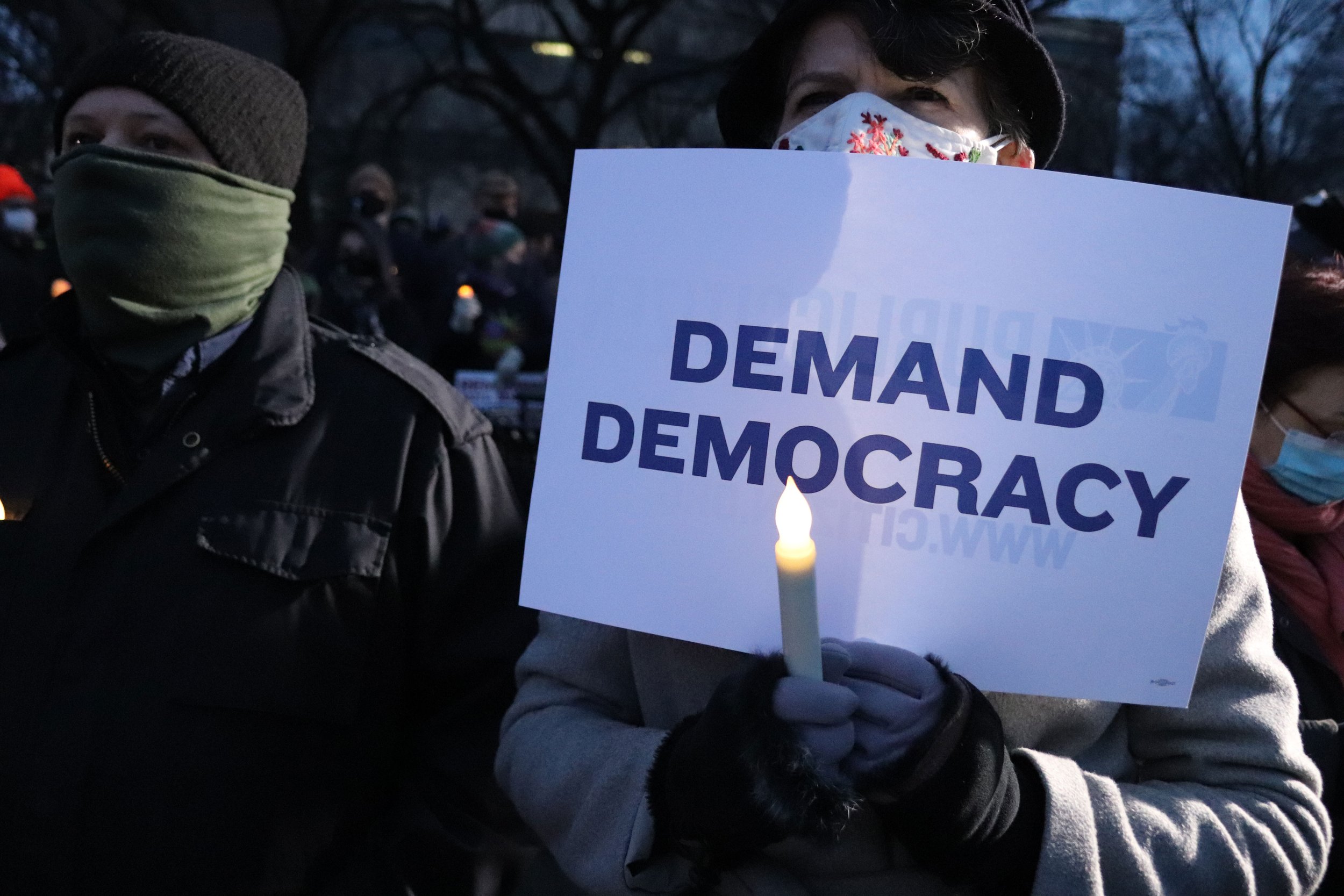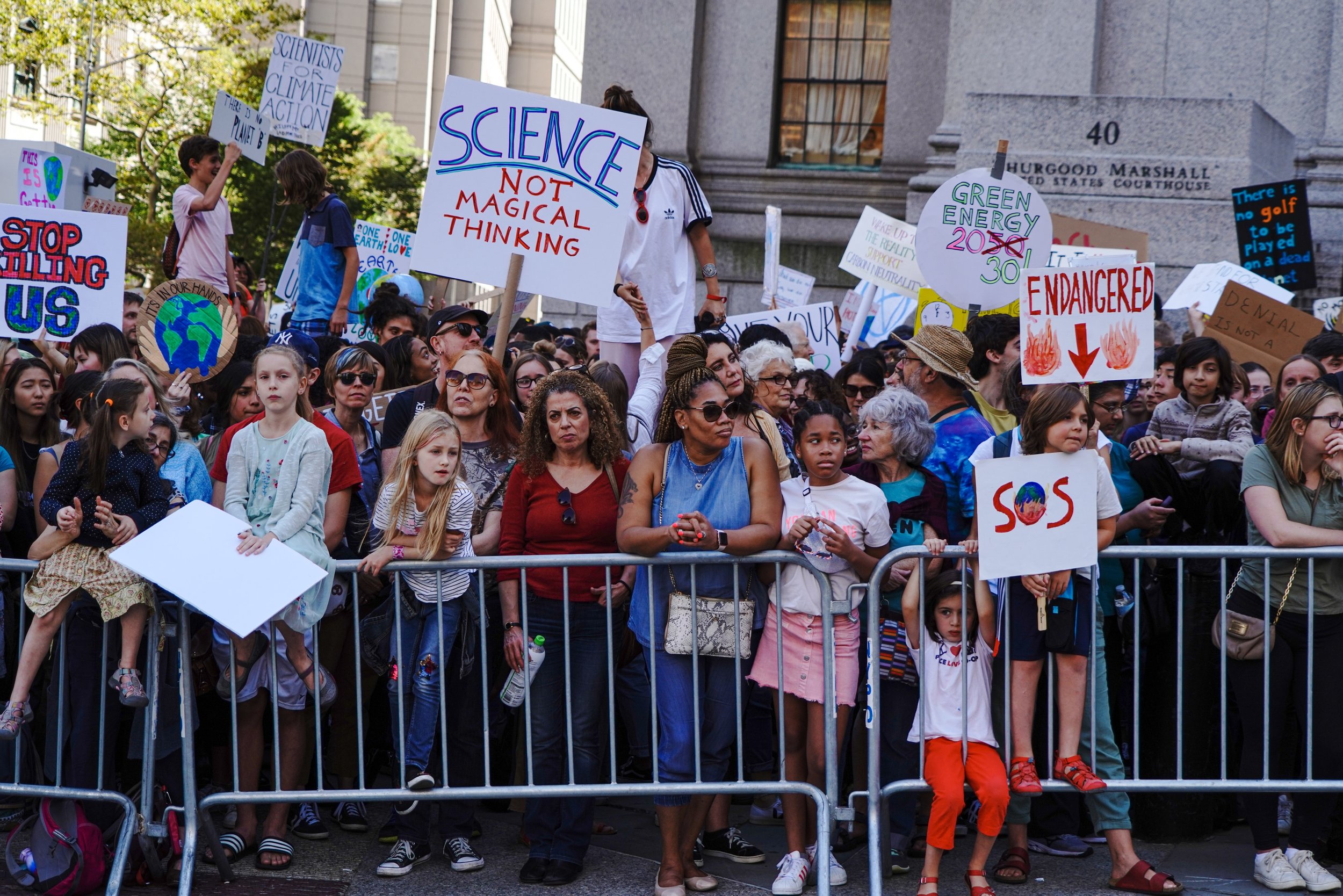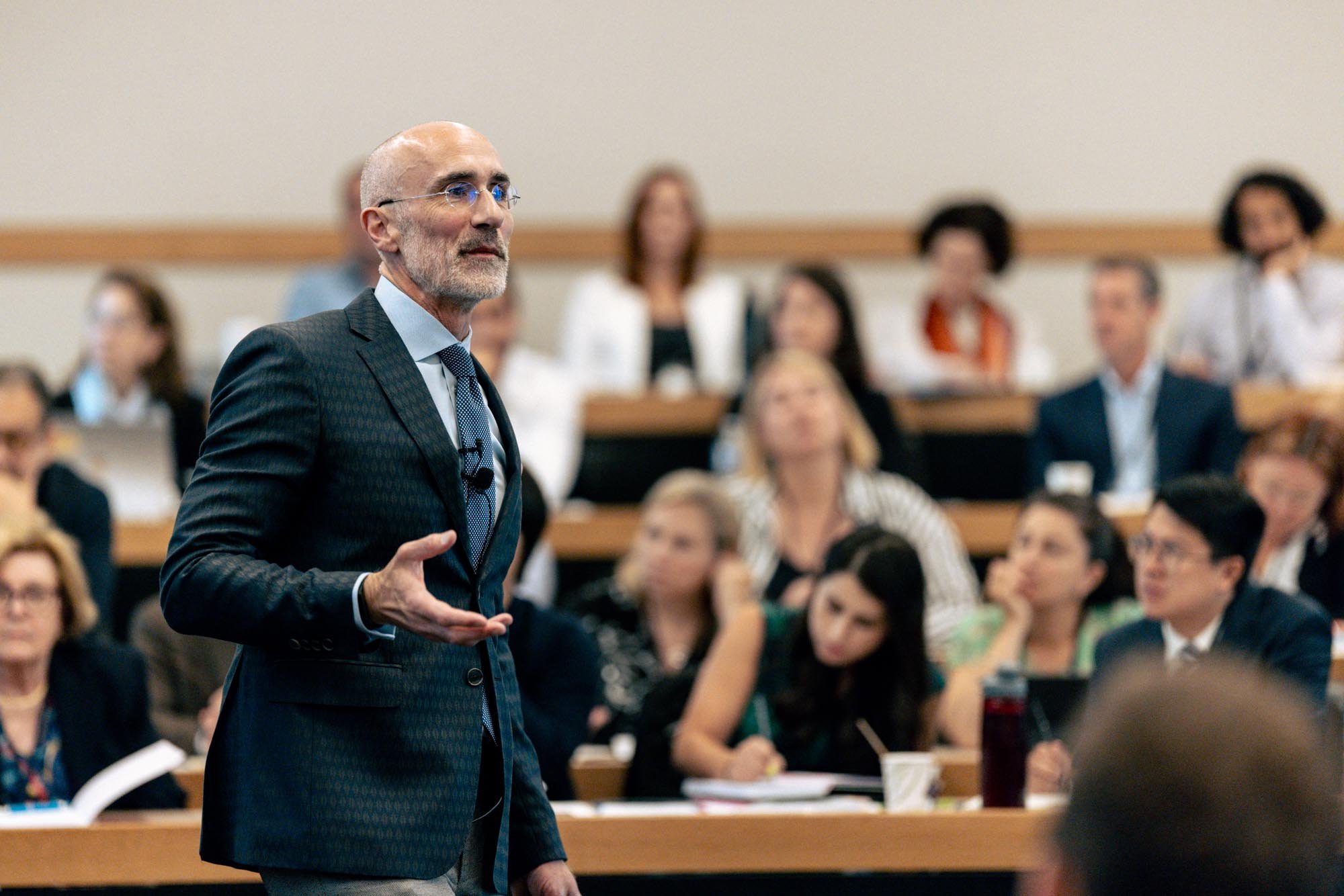Navigating Nonprofit Challenges: Insights and Advice
Recognizing pitfalls that can impede their missions is crucial for nonprofit organizations. Larry Gilson advises on how nonprofits can address challenges such as navigating philanthropic deserts, managing dynamics with funders, mitigating risks associated with scaling, and more.
Adversity as a Building Block to Achieving Your Authentic Vision
Shirin Behzadi shares with us how she achieved her North Star and overcame adversity by sharing her inspiring story. She also gives us an in-depth look at how to balance your North Star with potential risks.
Empowering Teachers: Tackling the Global Learning Crisis From the Front Line
High quality education is critical for reducing poverty and creating societal change, particularly in rural and underserved communities. Heather Hiebsch co-founded TeachUNITED to tackle this issue by prioritizing teacher quality and utilizing research-driven strategies to empower and support educators, and engage students.
Accelerating the Pace of Sustainability Transformations in U.S. Publicly Held Companies
Why do few corporations succeed at sustainability transformations, and why do others leave value on the table? Exploring best practices of successful corporate sustainability transformations provides a blueprint for others to follow. Greg Pilz explores the challenges, opportunities, and actions corporate leaders can take to capture value through sustainability.
Clearing the Air: Mobilizing Individuals in Developing Nations to Act Against Air Pollution
OPINION COMMENTARY:
The global toll of air pollution is staggering with over 4 million annual deaths and many ailments; most caused by the smallest particles (PM2.5) hanging in the air. Rajan Mehta suggests small lifestyle changes that can help save us against this scrouge.
Shaping Corporate Responsibility from the UN Guiding Principles: New Legislation in Human Rights and Supply Chain Management
As consumers, we often assume products are ethically sourced, but human rights violations persist in transnational corporations' supply chains. Caroline Rees, alongside Professor John Ruggie, championed the UN Guiding Principles on Business and Human Rights, laying the foundation for global legal frameworks to hold corporations accountable for human rights violations throughout their supply chains.
Rethinking Ownership: Putting Purpose at the Center
Traditional corporate ownership structures exacerbate societal inequities. Jenny Everett, Mark Hand and Natalie Reitman-White explore a new ownership model empowering businesses to align with their missions, benefit communities, and ensure long-term sustainability.
Democracy at a Crossroads: Trends, Threats, and Backsliding – Exploring Structural Solutions
Democracy is under threat in the United States and around the world. Pippa Norris identifies the causes of democratic backsliding worldwide and proposes actionable ways to address these challenges and revitalize democratic governance.
Harnessing Photography as a Force for Social Impact: The Transformation of NYC’s Freshkills from Largest Waste Landfill to Utopian Wilderness
The challenges our planet faces in waste management are complex. Can photos inspire hope and change behaviors? Jade Doskow believes so and has been working with Freshkills Park, creating an archive of photographs that illuminate the paradox of what was once the world’s largest household waste landfill, now transforming into one of New York City’s largest public parks.
Reframing Diversity, Equity and Inclusion in Higher Ed Through Olympic Values and Game Theory
OPINION COMMENTARY:
The merits of diversity, equity and inclusion (DEI) initiatives are being fiercely debated on university campuses and elsewhere in society. Dr. Judi Brown Clarke, a chief diversity officer at a public research university and Olympic medalist, advocates for incorporating Olympic values and game theory into DEI initiatives thereby creating inclusive campus environments.
How Reducing Methane Emissions Will Slow Climate Change
Methane is one of the most potent planet-warming greenhouse gases and is drawing intense global attention. Reducing methane emissions is the fastest way to reduce near-term planetary warming and advance our global climate, health, food security and energy transition goals. Prof. Robert Stavins leads a cross-disciplinary Research Cluster focused on reducing methane emissions, at the Salata Institute for Climate and Sustainability at Harvard University. Learn how Harvard-wide and broader global collaboration across law, economics, engineering, cutting edge satellite monitoring, private industry, and the COP28 “Global Methane Pledge” signed by 150 countries, are driving progress.
Kidney Transplantation for Undocumented Immigrants: Time To Find a Solution
OPINION COMMENTARY:
Approximately 3% of deceased undocumented immigrants donate kidneys, yet only 0.2% receive kidney transplants. Dr. Joel Adler highlights this stark disparity and calls for a reexamination of the organ transplant system, advocating for eligibility based on fairness and medical need.
Stem the Tsunami of Suffering From Metabolic Disease – Limit Ultra-Processed Foods in Our Food Supply
OPINION COMMENTARY:
Much of the American diet consists of ultra-processed foods (UPF) that fuel metabolic diseases, ill-health, and unnecessary suffering. We must implement strategies to reduce UPF for our collective well-being.
On This Land – Using Historical Markers to Address Forgotten African American Histories: The Genesis and Realization of a Social Impact Project
Destinee Filmore was an undergraduate at Spelman College when she realized that there were almost no historical markers in Atlanta that explicitly addressed the history of enslavement in the city. She decided to change that by creating a technologically innovative social impact project that addresses forgotten, hidden or ignored African American histories. Filmore takes us through the challenging process that resulted in moving her idea from concept to execution.
Brain Care: A Radical Vision for Reducing Risk of Brain Disease
Did you know you can take care of your brain and reduce the risk of developing dementia, stroke, or depression through simple lifestyle changes? Massachusetts General Hospital’s McCance Center for Brain Health lays out a bold vision for reducing the risk of brain disease and scaling it globally.
A New Frontier: Generative AI, Business Risks, Opportunities, and Investments in Climate Change
Finding emerging climate market opportunities can be challenging. As generative AI moves into the mainstream, Harvard Business School Professor George Serafeim shares how it can transform the way stakeholders and investors unlock new insights to better evaluate a company’s climate solutions, next generation innovation investments, and potential downstream risks and opportunities impacting business performance, human capital, and industry disruption.
Grassroots Revolution: Building Resilient Nonprofits with Strategies from Political Fundraising
Nonprofits struggle to harness the influence of grassroots donors. Henry Carroll and Taylor Greenthal recommend leveraging political fundraising strategies and collaborative efforts to efficiently build a broad grassroots donor base, ensuring successful navigation of the digital fundraising transformation.
Book Reviews: Best Books for Kids on Climate Change – Explore, Learn and Make a Difference
Explore over 30 diverse climate change books for kids, spanning various age groups and featuring unique perspectives. Despite challenges such as politicization and book bans, these resources provide valuable insights, offering pathways for children to confront climate challenges through awareness and positive actions. Prepare the next generation for civic engagement through empowering climate literature.
Pursuing Happiness: Lessons Learned from the Harvard Kennedy School Inaugural Leadership and Happiness Symposium
As you create New Year’s resolutions for 2024, consider applying some of the current research presented at the inaugural Leadership and Happiness Symposium, hosted by the Leadership and Happiness Laboratory Founded by Professor Arthur Brooks at the Harvard Kennedy School’s Center for Public Leadership, to make yourself, your communities, and the world a happier place.
The Moral and Economic Answer to NYC’s Homelessness Isn’t Shelter, It’s Housing
The surge in New York City's homeless population, exacerbated by the expiration of pandemic-related measures, poses a critical challenge, with numbers reaching unprecedented levels. Christine Quinn urges upholding the "right to shelter," faster transitions to permanent housing for cost savings, and collaboration to address the multifaceted crisis.



















